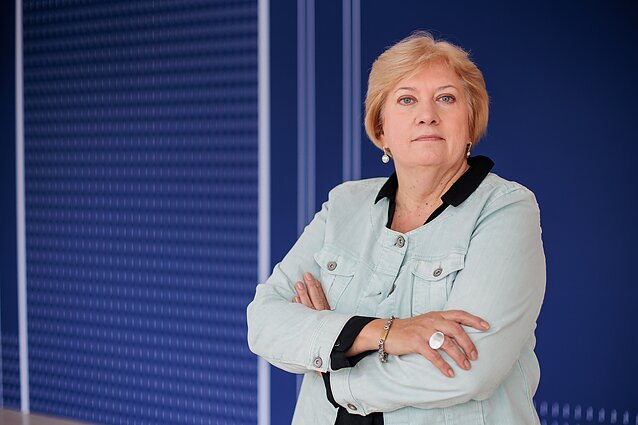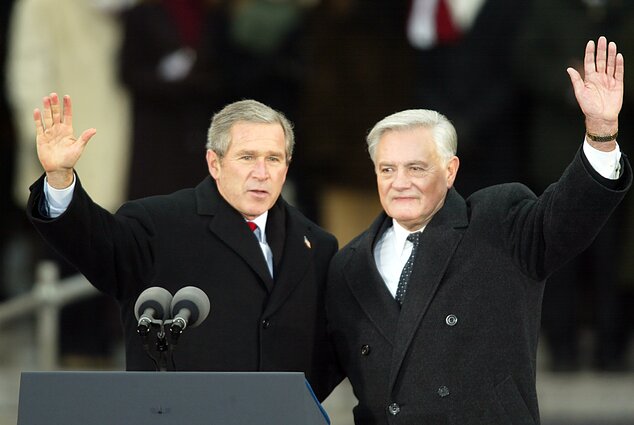
Former Lithuanian Ambassador to Canada Speaks on NATO and Ukraine
On December 1, LRT.lt published an interview with Gintė Damušis, well-known in the US, Canada and throughout the world for her lifelong dedication to Lithuania. Lithuania was the first country in NATO history to appoint a female ambassador, Gintė Damušis. According to Damušis, the most important thing is that Lithuania became a NATO member because without it, Russian President Vladimir Putin would have already returned to the Baltic states.
Damušis’ diplomatic career began in 1991 and ended in 2021. During this time, she served as Lithuania’s ambassador to NATO, OSCE, Austria, Slovakia, Croatia, Canada, Denmark, and Iceland, as well as the Foreign Ministry’s ambassador at large.
Asked about the importance of George W. Bush’s words during his visit to Lithuania 20 years ago, that the enemy of Lithuania will also be the enemy of the US, she said that they reflected a change in thinking that has taken place not only in the US but in NATO as a whole. When she was assigned to NATO, she introduced herself to the ambassadors of the NATO countries and colleagues in other partner countries and was shocked that nobody, especially among the ambassadors of the NATO countries, wanted to talk about NATO enlargement. For Llithuania, this was one of the main strategic foreign policy objectives. Bush’s speech reflected a change in thinking because there were sceptics, especially experts, who predicted that the Baltic states would never become members of NATO or that defending them would be very difficult, which would be an obstacle to NATO membership. For the US leader to say bluntly that he was committed to defending Lithuania’s security was an extremely significant event.
 In her view, the real breakthrough that opened the door to NATO for Lithuania happened on 9/11 because then the US realized it needed to focus on a larger coalition and not exclude small countries. It saw that the states invited to become NATO members not only exploit the security provided but also help to create that security. “After 9/11, NATO countries met separately to discuss how to respond, and Lithuania, as the leader of the Vilnius Group, convened the candidate states and said that we must also respond, we cannot remain passive. We drafted the statement […] and read it at the next plenary session of the Euro-Atlantic Partnership Council. We expressed our solidarity with the US and suggested that, if necessary, the US could use our airspace.” The Ambassador said the turning point was the fact that the countries invited were very serious about preparing for membership.
In her view, the real breakthrough that opened the door to NATO for Lithuania happened on 9/11 because then the US realized it needed to focus on a larger coalition and not exclude small countries. It saw that the states invited to become NATO members not only exploit the security provided but also help to create that security. “After 9/11, NATO countries met separately to discuss how to respond, and Lithuania, as the leader of the Vilnius Group, convened the candidate states and said that we must also respond, we cannot remain passive. We drafted the statement […] and read it at the next plenary session of the Euro-Atlantic Partnership Council. We expressed our solidarity with the US and suggested that, if necessary, the US could use our airspace.” The Ambassador said the turning point was the fact that the countries invited were very serious about preparing for membership.
Damušis noted that there were also sceptics in Lithuania who said the country should invest in education instead of security. “We had to deal with all that scepticism with evidence that we were serious about preparing for membership, that we were not only exploiting security but also paying our dues to security. It was a turning point for us too because there was a time when we depended on others’ help.” Denmark was the first country to include Lithuanian troops in its units for peacekeeping operations in the Balkans. This was an extremely important experience. “But then we realized that we had to participate in NATO operations and missions ourselves.”
Damušis attended the Seimas session when the decision was taken to send Lithuanian troops to the Danish peacekeeping operation. Those who objected this decision were a minority. “They said that we cannot take risks, that we need to take a different approach to security. Some even proposed neutrality as a possible option, but the political leadership at that time had already made up its mind.” There were also people in the political leadership who were influenced by the Soviet propaganda that NATO was an enemy, a war-monger. They needed to be educated.
Coming to Vilnius from Brussels, she always informed the prime minister, the president, and the Foreign Affairs Committee about the discussions taking place in NATO headquarters.
The aim was to reassure everyone that NATO is a collective defence alliance that seeks to maintain stability, that it is committed to its member states, and that it is certainly not an aggressive alliance.
When serious discussion about NATO enlargement started, some Western analysts said that the Cold War is over, so NATO no longer has a mission, that it was time for NATO to shut down. But there was probably not a single NATO member who would have accepted that. There were also many countries that wanted to join NATO and contribute to the objectives of the alliance.
“I think we didn’t realize that with Lithuania’s accession to NATO, we also shattered the glass ceiling with the first female ambassador. I didn’t realize that, and I guarantee that the Lithuanian leadership itself didn’t realize what it had done.”
As to Ukraine’s chances of joining NATO, Damušis recalls being sent by the ministry to Ukraine to talk about Lithuania’s path to NATO, to share its experience of initially low public support (23-27%) and how Lithuania increased it to almost 80% with consistent, convincing arguments and with representatives of the Foreign Ministry visiting villages and educating the public.
In Ukraine she saw that the non-governmental sector was in favour of NATO membership, but the public sector, including the military, was more reserved. There was no clear decision until the Maidan revolution.
“Now Ukraine is proving that it is determined, that it has made up its mind, that it is fighting for us, and NATO needs to recognize that. Of course, the priority is Ukraine’s victory, and we can see that NATO is certainly doing everything it can to ensure that Ukraine is able to achieve that victory.” It would be difficult to expect NATO membership for Ukraine sooner than the end of the war, but “predicting what will happen is a terribly difficult and dangerous job”.
Abridged from LRT.lt



























